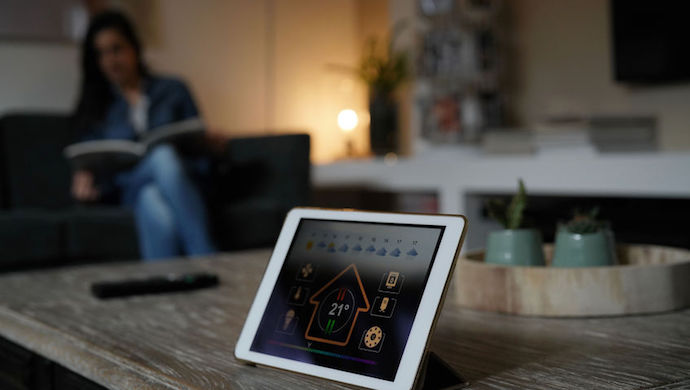It could be the solution to several of the pain points IoT is currently experiencing

As of 2017, there were more than 3.7 billion internet users, more than 2.7 billion active users on social media, nearly 5 billion unique mobile phone users, and more than 2.5 billion mobile social media users throughout the world. Of those, Southeast Asia made up 9 percent of Internet users, 11 percent of social media users, and 11 percent of mobile connections. Beyond Southeast Asia, the entire Asia comprises the highest number of connected devices — making it one of the largest Internet of Things (IoT) hubs in the world.
With an ever-increasing number of connected devices across the globe, IoT is booming. While its growth is exciting and promises change that will affect the world in many positive ways, it’s not without its flaws and has caused some concerns. The solution could be another up-and-coming technology, though—blockchain.
Blockchain is a decentralised, digital ledger that makes it possible to cut out the middleman and make transactions directly; it records those transactions cryptographically so they cannot be changed or altered once recorded. The technology has a seemingly endless number of applications across virtually every industry, and it’s already shaking things up. It could be the solution to several of the pain points IoT is currently experiencing.
According to Next Big Thing, an innovative startup in the space, IoT and blockchain will be a perfect marriage. Next Big Thing is a European company builder offering entrepreneurs, in connection with trusted industry partners, a complete framework to accelerate new ventures which utilize IoT and blockchain technology. Providing mentorship, funding, business expertise and specific focus on IoT and blockchain, Next Big Thing believes IoT needs blockchain for a number of reasons – including security, automation, and cost reduction. Let’s take a look at the first reason in more detail.
1. Blockchain Can Provide Better Security for IoT
Because IoT is made up of devices that are connected to the internet, they’re vulnerable to hacks and cyber attacks. As more smart devices are developed, the risk continues to grow; products like smart light bulbs and thermostats in addition to existing smartphones, computers, watches, and other connected devices leave us highly susceptible.
An example of one of many attacks, a report released by Verizon Wireless last year discussed “The Case of the Botnet Barrage,” which detailed an IoT attack at a university. The IT security team at the university began receiving a number of complaints about network connectivity issues. At first, they wrote it off, but as complaints continued to roll in, they launched an investigation. They found more than 5,000 IoT devices had been attacked, and more than 5,000 discrete systems were making DNS lookups every few minutes. It spread so easily because of weak passwords.
According to a Gartner Research Report, there are more than eight million IoT “things” in use today, and that number is expected to rise, meaning the risk of attacks on IoT will only continue to climb — without blockchain, that is. Because blockchain records transactions, stores the information in decentralised locations, and cannot be altered or deleted, it is a viable solution in making IoT more secure and warding off cyber attacks.
Also read: Smarter cities: How blockchain can transform urban planning
2. Blockchain Enables Automation to Reduce Costs
With today’s technology, there should be no need to manually complete certain tasks, and blockchain makes it possible to automate those processes. One aspect of blockchain that can be used across every industry for automation is smart contracts. Once created, smart contracts are governed, executed, upheld, and carried out by the blockchain rather than an individual person.
Smart contracts can automatically deduct monies owed and allow peer-to-peer communications and transactions to be handled without human oversight. For example, if there is a violation or breach of contract, the blockchain can deduct the penalty, eliminating the need for third-party mitigation or litigation and saving time and money for both parties entered into the agreement.
Furthermore, because blockchain is decentralised, there’s no need for a middleman or intermediary. That means blockchain technology could reduce costs by handling operations directly. There’s no need for go-betweens and third-parties to get involved, and the money saved can be used for more important matters.
Final Thoughts
IoT has the potential to affect the world and enable businesses to be more effective with data collection and management, but as it stands now, there are issues which need to be addressed. Through the implementation of blockchain, IoT will become more secure, benefit from automatic processes, and even become more cost-effective, addressing current issues and making it a stronger asset than ever before.
Are you watching any promising IoT/blockchain applications? Let us know what trending tech you’re following in the comments.
—-
e27 publishes relevant guest contributions from the community. Share your honest opinions and expert knowledge by submitting your content here.
Featured Image Copyright: goodluz / 123RF Stock Photo
The post 2 reasons why IoT needs blockchain to take off appeared first on e27.